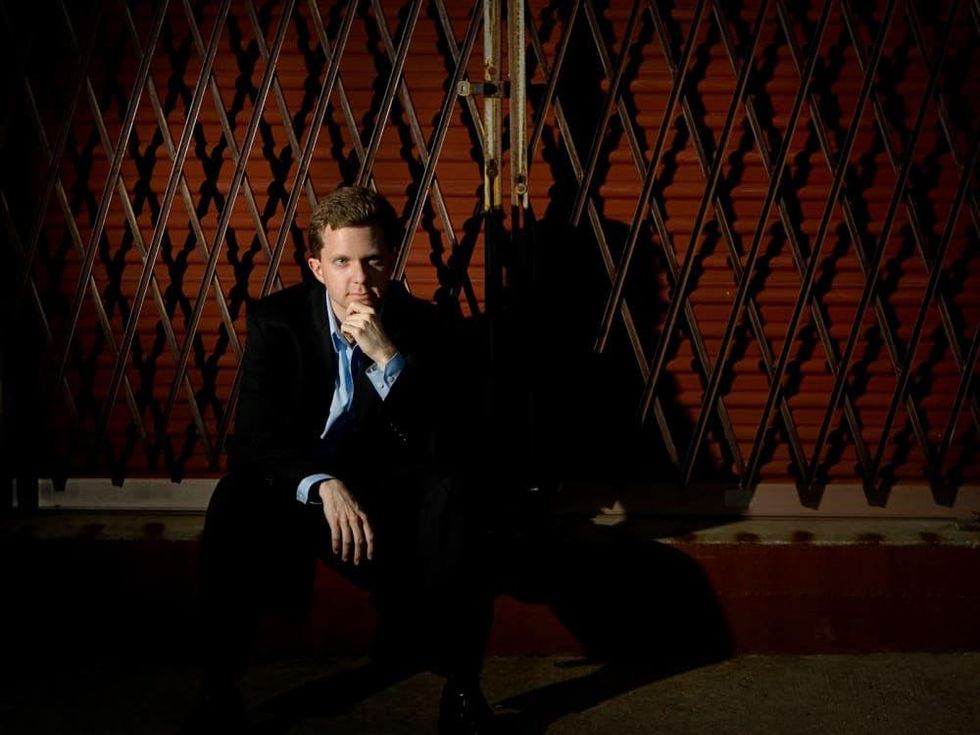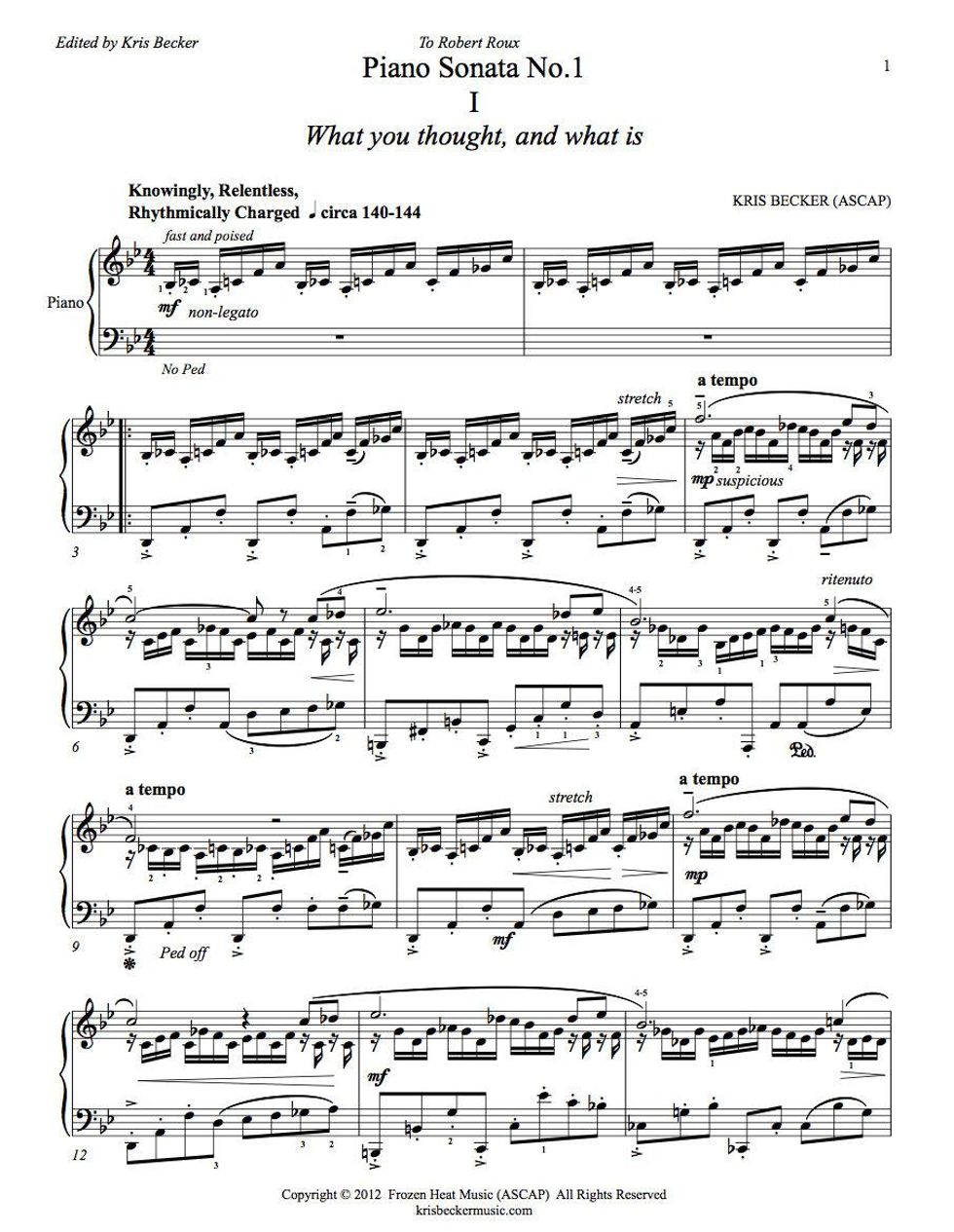Notes on the Staff
Unapologetic energy: Houston musician wins a major international award
A few minutes in, the virile whirlwind that's Kris Becker's Piano Sonata No. 1 leaves one breathless, the incessant surge of cascading riffs capturing the dexterity of the Houston-based performer/composer who can't easily be categorized as belonging to only one genre of music.
The 50-page score reveals writing that resembles the arpeggiated passages found in the Well-Tempered Clavier preludes of J.S. Bach. The first movement, titled What you thought, and what is, opens with a syncopated groove that blossoms with tense sustained melodies floating atop an unsettling rumble — as if the love child of Chopin and Liszt erupted in a spastic, bipolar tempter tantrum. Allusions to heavy metal, experimental jazz and 1970s hard rock abound, but, according to Becker, that wasn't on purpose.
He just happened to be listening to music by Black Sabbath, the Mahavishnu Orchestra and McCoy Tyner while working on the sonata.
Listen to What you thought, and what is to below:
The other three movements — titled Not to keep you waiting, Against all better judgment and Reconciliator — form a subconscious story arc.
Becker coined his mishmash of classical structures and popular inclinations "nu-classical," but not in the traditional sense of executing one style in another one's framework. Becker's nu-classical is a genuine blend that results in a sound that seems not to be associated exclusively to conventions of the past. Rather, it reinvents what it means to fuse these elements synergistically.
"Compositionally speaking, I aimed to be intellectually rigorous while viscerally enjoyable and relatable," he says. "Lots of muscularity is required in technique and mind to render a fitting interpretation, and an unapologetic energy."
"From him, I learned everything that galvanized my musicianship, they way I produce my sound, the way I approach performance, the way I work on my artistry."
The composition recently earned accolades from the IBLA Foundation, an organization that hosts an annual competition for pianists, singers, instrumentalists and composers in Italy. The 2013 IBLA Grand Prize results ranked Becker as the highest scoring composer. The foundation also awarded Becker with a Most Distinguished Musician title and a special mention for his sonata. The honor comes with a national concert tour, which includes a stop in Carnegie Hall in New York.
"The recognition is a fantastic boost to my burgeoning career," Becker tells CultureMap. "I've been fortunate to receive national attention for my work, but to receive an international endorsement is a huge confidence booster. It's an indication of how my work comes across, especially when it was evaluated in the company of compositions that are scored for larger musical forces.
"It validates what I am doing."
Prior to crafting his four-movement work, which had previously won the 2012 National Federation of Music Clubs Emil and Ruth Beyer Composition Award, Becker had collected hundreds of musical ideas. Voice memo recordings of little snippets and improvisations filled his iTunes library. In 2011, he resolved to make sense of all these concepts in a large-scale piece that was designed to be big and extremely difficult to play. Becker sketched most of the first movement over the course of a couple of weeks in his apartment, but without an acoustic piano. Due to space restrictions and noise concerns from his neighbors, the Piano Sonata No. 1 was conceived on a Yamaha keyboard.
The rest of the sonata was scored relatively quickly the following year. In 10 days, Becker, influenced by adrenaline and endorphins from a strict exercise regiment combined with some health setbacks — a period he describes as an elevated state with highs and lows — finished his sonata in time to submit it to the National Federation of Music Clubs for consideration. Becker dedicated the piece to his piano teacher Robert Roux, who's a professor at Rice University's Shepherd School of Music.
"To say that Robert was my piano teacher sounds so dry and childlike," Becker says. "He taught me how to make music. From him, I learned everything that galvanized my musicianship, they way I produce my sound, the way I approach performance, the way I work on my artistry.
"I don't dedicate any of my works unless the occasion arises. It was fitting to dedicate this early work in my catalogue to the man who brought me to Houston."
Becker's Piano Sonata No. 1 was commercially released as part of his Expansions album. The score is available online and the music can be purchased on iTunes and CD Baby. In January, Becker plans to release the sonata as a music video.




